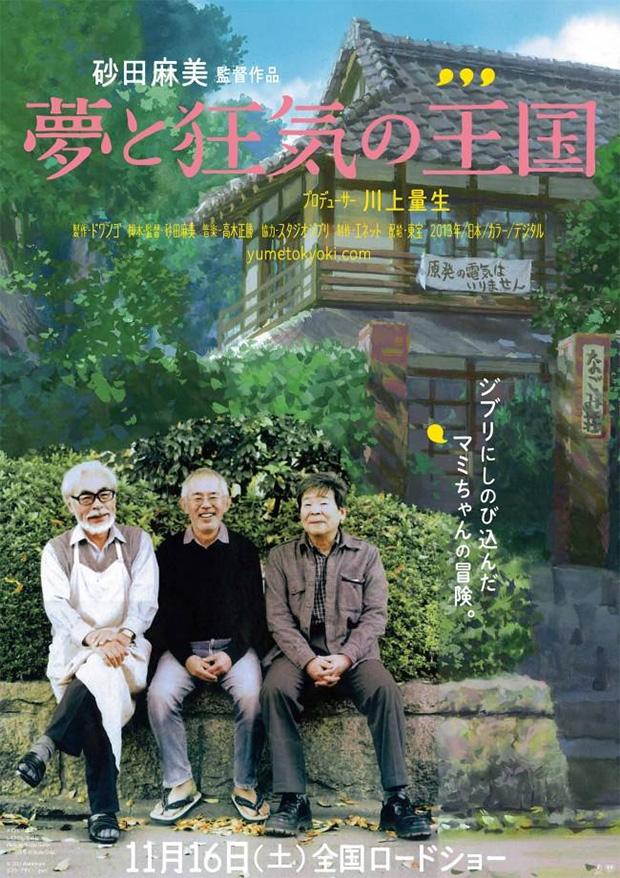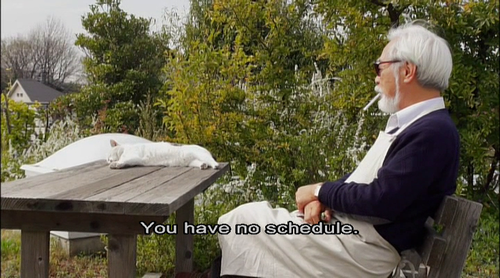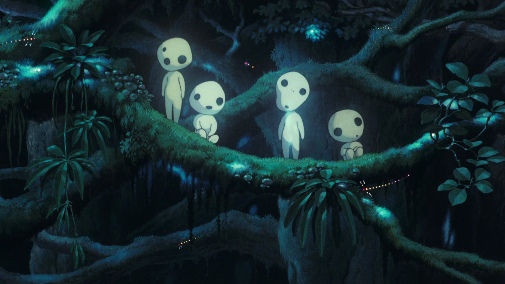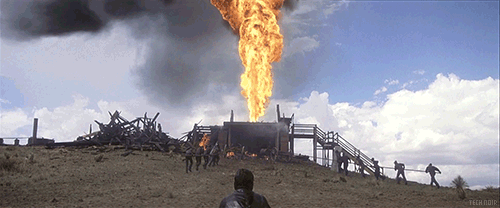Nathaniel's adventures at TIFF. Day 1
 Are documentaries about filmmakers that are at least in part documentaries about the making of particular films, just giant infomercials? Can they ever not be even when they're good? The Kingdom of Dreams and Madness, a documentary about Studio Ghibli in Japan made me desperate to see Miyazaki's final picture The Wind Rises. And I've already seen it!
Are documentaries about filmmakers that are at least in part documentaries about the making of particular films, just giant infomercials? Can they ever not be even when they're good? The Kingdom of Dreams and Madness, a documentary about Studio Ghibli in Japan made me desperate to see Miyazaki's final picture The Wind Rises. And I've already seen it!
Kingdom purports to be about Studio Ghibli but is actually much closer to a profile of Hayao Miyazaki and his regimented and consistent working methods: he works from 11 AM to 9 PM exactly Mondays through Saturdays; he storyboards all of his movies in chronological order while they're in production (no actual screenplays) so no one, including him, knows how they'll develop and end; his daily routine includes a walk in which he waves to the children of the animators in the in-house nursery and a trip to the roof near sunset with his animators in tow; and so on. This routine has remained the same for decades as has, one could argue, the quality of his work.
Several darker implications or offhand remarks that Miyazaki is a pessimistic unhappy soul, that Studio Ghibli is on its last legs, or that Miyazaki is incredibly demanding and tough on his animators, particularly the best ones, are never fully explored by the smitten filmmakers but they do serve to contour the portrait a bit and prevent a hagiography. We don't hear much about other filmmakers and projects beyond two interesting business meetings about things like Spirited Away merchandise and what to do with Miyazaki's son who is also a filmmaker albeit a reluctant one. The most lively thread is arguably the ocassionally bitchy and exasperated references to Miyazaki's mentor, former partner, and creative rival Isao Takahata and his interminably slow production of The Tale of Princess Kaguya (which was meant to premiere alongside The Wind Rises but has only recently been completed and is also playing here at TIFF!).

Despite its limitations this documentary is never dull and is often extremely charming. Particularly wonderful are the many shots of a black and white short tailed cat that wanders freely around Studio Ghibli demanding doors be open for it. This cat, who almost seems like an animated character, strangely never ventures into Miyazaki's workspace as if blocked, staring, by some invisible wall. Still, Miya-san likes him. They share a brief funny moment at a picnic table outside late in the film, the cat sleeping, the filmmaker looking on with envy; Miyazaki has since retired. But this documentary practically insists (or pleads?) that the great filmmaker's new nap time can't possibly stick. B
 Tuesday, March 26, 2024 at 6:00PM
Tuesday, March 26, 2024 at 6:00PM 





